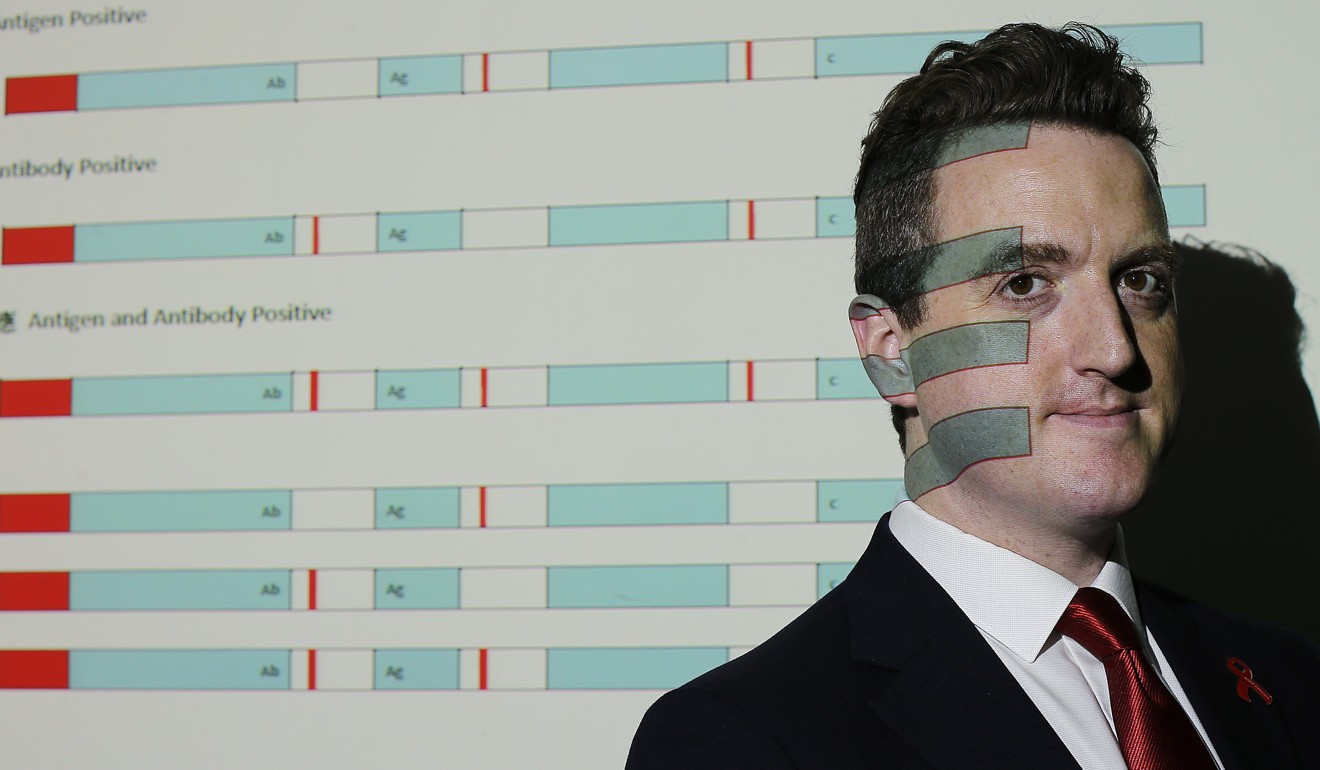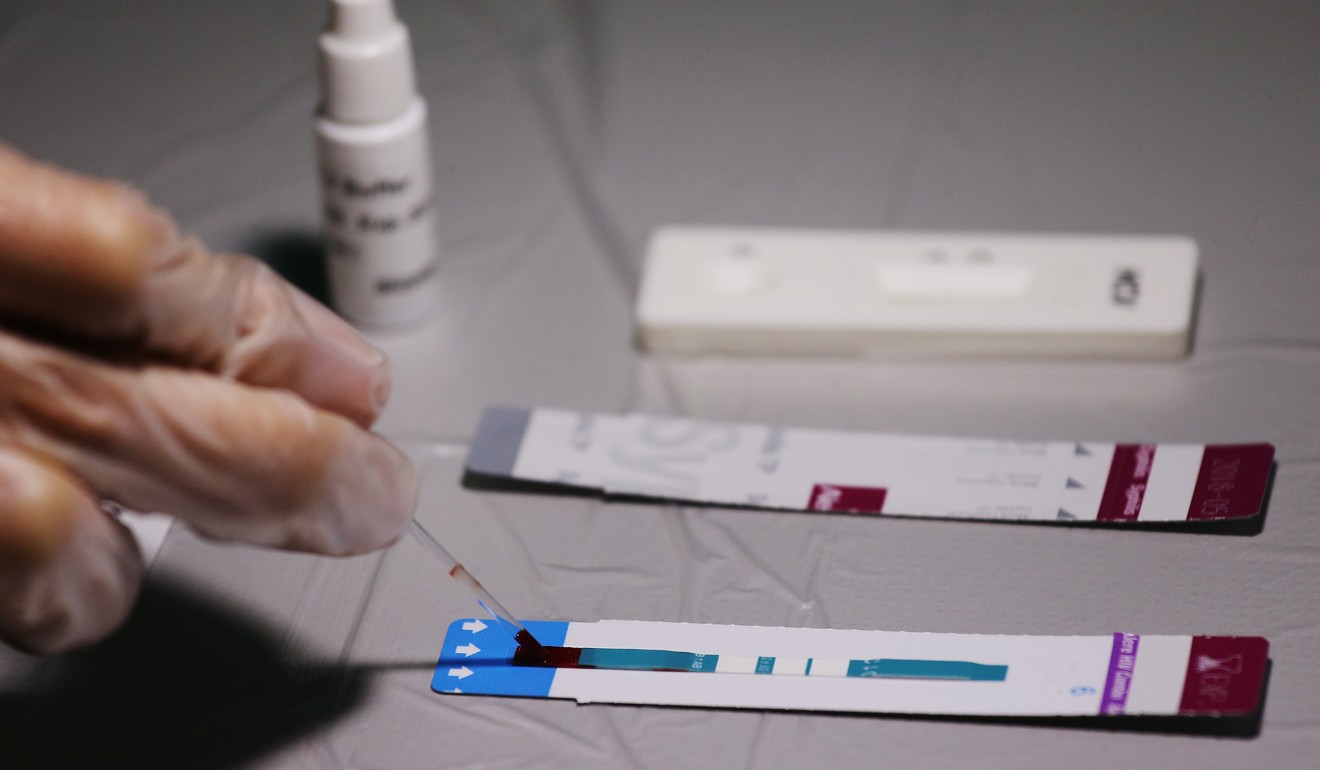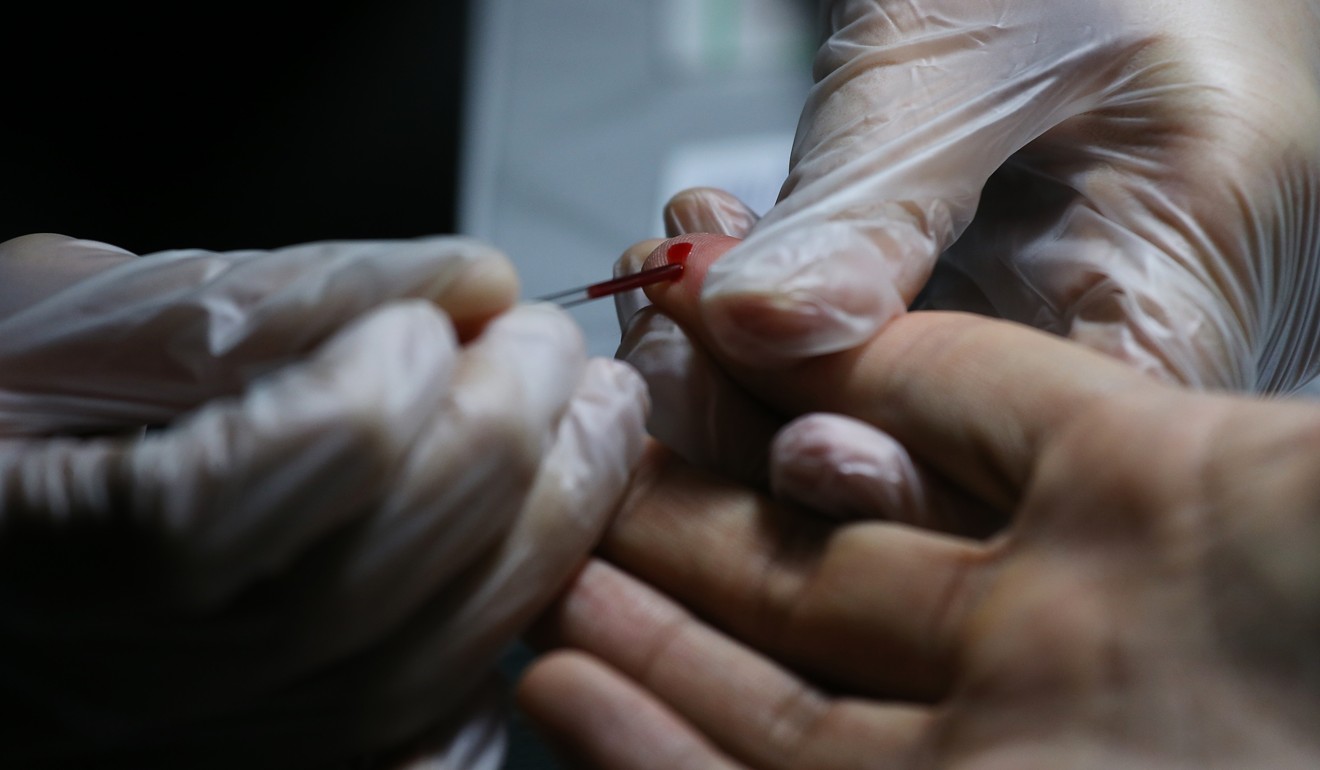
Hong Kong government cuts cash for HIV prevention, just as infections set to surge
Groups running testing and outreach services say they have had to cut back operations or start charging users, raising the prospect of even more city residents affected
Large cuts to cash the government gives to groups battling HIV and Aids in Hong Kong have pulled the plug on testing and awareness-raising services for high-risk groups, despite a predicted surge in local infections.
Several local HIV and Aids groups have said the Department of Health cut their funding or cut their funding period from three years to one year, for prevention projects targeting both heterosexual and homosexual men.
The cuts have hit as the number of Hongkongers living with HIV is expected to surge by 35 per cent in the coming four years, according to the government’s Advisory Council on Aids. According to the Department of Health, there were just under 9,000 people infected in the city by September this year.
The city’s annual count of new HIV and Aids infections has more than doubled in the past decade, from 313 new cases in 2005 to a peak of 725 in 2015. In the first three months of this year there were 202 new infections recorded, the highest quarterly count since records began in 1984.
Unprotected sex remains the main mode of transmission for HIV in Hong Kong, accounting for almost 80 per cent of infections. The virus can lead to Aids, a potentially life-threatening deficiency in the immune system.
Andrew Chidgey, head of Aids Concern, a major NGO for prevention of the disease, said the funding cuts had forced his group to cut staff and suspend HIV rapid tests, which give results in 20 minutes, as well as outreach services for heterosexual men since June.

The group could no longer run regular services reaching out to men working in male-dominated industries, like taxi drivers, builders and cross-border truck drivers, Chidgey said. It could now only do outreach in the nightlife hotspot of Lan Kwai Fong, financed by public donations.
“We could see a resurgence in heterosexual infections, if high-risk heterosexuals do not understand they are at risk and therefore become more relaxed about safe sex practices,” he said.
Tommy Chen, executive officer of LGBT group Rainbow of Hong Kong, said the government stopped funding all of their work this year. Since 2007, public funds had covered about 80 per cent of its HIV testing and outreach services and half of the rent for its office in Jordan, Kowloon.
“My colleagues and I do not have any salaries and we pay for the rent out of pocket,” Chen said. “Our clients now have to donate at least HK$200 to us to get an HIV rapid test. It was free of charge before.”
Thomas (not his real name), a gay university student, said he takes the HIV rapid test at least once every year at service centres like Rainbow of Hong Kong because he has more than one sexual partner, but added that he only has protected sex.

He voiced disappointment that the centre no longer provided free-of-charge rapid tests.
“Although government clinics offer free-of-charge testing, I feel more at ease getting tested in an NGO because they have longer service hours ... and staff who are also gay and understanding of my concerns,” the 22-year-old said.
“The fewer barriers, the more encouraging it is for people to get tested,” he added.
Violence against women and homosexuals in Latin America a factor in the spread of Aids
Chidgey, also the chairman of the Coalition of Aids Service Organisations, which oversees 10 local HIV groups, said although the government continued to subsidise some prevention projects for gay men, it had generally cut funding periods from three years to one year.
“This creates problems for an NGO in terms of sustainability,” he said. “There is uncertainty for staff as to whether their position will exist in the future and you have to be careful about planning future programmes.”

Apart from Aids Concern and Rainbow of Hong Kong, the Hong Kong Aids Foundation and Project Touch of The Boys’ and Girls’ Clubs Association of Hong Kong have also suffered funding cuts or had the funding period cut, compared with previous years.
A spokeswoman for the Aids Trust Fund, under the Department of Health, said it would only approve “projects that are best designed, most cost-effective, and targeted at the most imminent needs of the current HIV situation”.
She said the government was particularly concerned about preventing infections among gay men, especially the young. She added: “The [fund] has no obligation to provide additional funding for completion or renewal of the programme ... or any recurrent consequences.”

